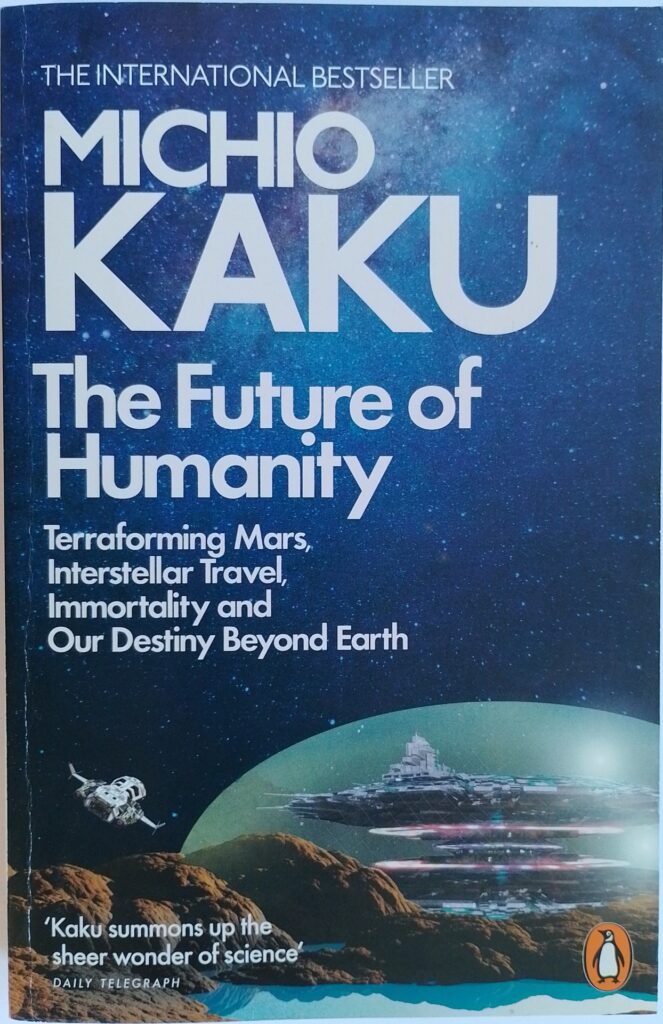First published 2018. Penguin, paperback, 2019, pp 339, c.120,000 words (main text).
This book is to a degree an update of Kaku’s Physics of the Future, and that’s no bad thing. This volume is structured around the future of space travel, but covers a wide range of topics. Space travel is expected to move rapidly from setting up bases on the moon and Mars, mining asteroids, and then on to the stars. The final section deals with how humans might change themselves, either through advances in medicine, genetic engineering or by integrating technology into our bodies. He also considers encountering extra-terrestrials (almost certainly bad news for us if they are intelligent) and finally what the implications are of some of the unproved theories currently being explored by physicists turn out to be true and exploitable.
The style is very accessible and engaging. While some heavy physics is touched on, it in no way bogs down the flow. Kaku is a very experienced science communicator, having hosted many science programmes on television. If you’ve ever seen one, you can hear his distinctive voice as you read the book. A minor flaw is the frequent use of ‘in fact’ which is entirely superfluous in every instance, and something his editor should have dealt with.
There are many topics covered that feed into the main story. For example, he gives a brief history of AI, explaining very clearly why it has been a perpetual disappointment. All the hype has disguised two useful but limited advances: expert systems and pattern recognition systems. But to fulfil our potential we will need the help of autonomous systems and the current AI research into neural networks (pattern recognition) holds promise in this regard. He deals with faster than light travel, immortality and escaping the end of the universe in the same manner: some brief history of why we believe something is so, a bit of expert input on the implications, and then laying out some hypotheses on how humanity might take advantage of the knowledge.
In a few places Kaku gets deep into the physics, although there are no equations, as he tries to explain such concepts as string theory and the multiverse. These are useful glimpses into where physicists are heading, but I didn’t end up understanding them. Perhaps, like quantum mechanics, one shouldn’t try too hard understand because they have no analogues on the scale at which we sense.
This is a very entertaining, accessible and thought-provoking summary of the implications of current scientific understanding and research for the future of humanity. Highly recommended.
© William John Graham, June 2022

